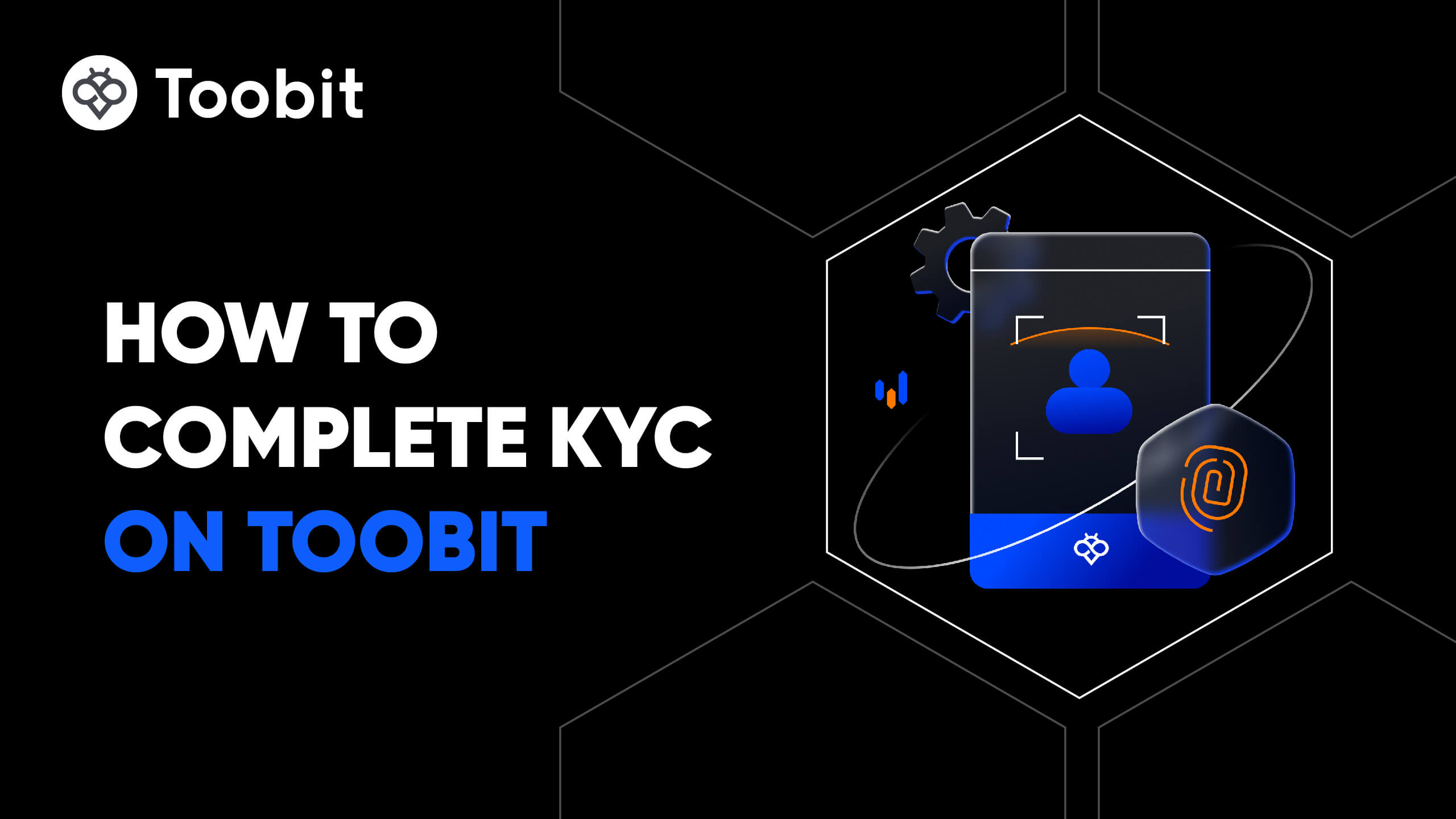Chainlink price
LINKChainlink market info
Live Chainlink price today in USD
How much is 1 LINK worth in ?
About Chainlink(LINK)
Chainlink price history
Why does the price of Chainlink always fluctuate?
What factors affect the performance of Chainlink prices?
Global Chainlink prices
How to buy Chainlink
Create your free Toobit account
Sign up on Toobit with your email address/mobile phone number and country of residence, and create a strong password to secure your account.
Verify your identity
Complete identity verification by submitting your personal details and a valid photo ID.
Add a payment method and buy Chainlink (LINK)
Add a credit/debit card or bank account after verifying your Toobit account. Use multiple payment options to buy Chainlink on Toobit.
Trade LINK perpetual futures
After signing up on Toobit and buying USDT or LINK tokens, you can start trading derivatives, including LINK futures and margin trading to increase your income.
Join LINK copy trading with lead traders
After signing up on Toobit and successfully buying USDT or LINK tokens, you can also start copy trading by following Lead Traders.
Where can I buy Chainlink?
Buy crypto on the Toobit app
Sign up within minutes to purchase crypto via credit card or bank transfer.
Trade on Toobit
Deposit your cryptocurrencies to Toobit and enjoy high liquidity and low trading fees.
Video section — quick verification, quick trading

How to complete identification on Toobit and protect yourself from fraud
- 1.Log in to your Toobit account.
- 2.If you're new to Toobit, watch our tutorial on how to create an account.
- 3.Click on the profile icon in the upper right corner of the navigation bar, then tap on Identification page.
FAQ About Chainlink (LINK)
What is the LINK token used for?
The LINK token is an ERC-677 utility token that powers the Chainlink network. Its primary uses are:- Node operator payment: Smart contract developers and enterprise users utilize LINK to pay the decentralized oracle nodes for their services, such as delivering real-time Data Feeds, Verifiable Random Function (VRF), and, critically, securing cross-chain messages via CCIP.- Staking and security: Node operators and community members stake LINK as collateral to guarantee the reliable and honest performance of oracle services.If operators fail to meet performance standards or act maliciously, their staked LINK can be slashed (penalized), providing a strong crypto-economic security guarantee.What is the primary utility and tokenomics of the $LINK cryptocurrency?
The $LINK token is the native asset fundamental to the "Chainlink Economics 2.0" model. Its utility extends beyond basic payment to form a cryptoeconomic security layer:- Payment for services: It is the required token used to pay all fees for Chainlink services, including data delivery, automation, and cross-chain messaging via CCIP.Staking Collateral: LINK is staked by the community and node operators to ensure the reliability of the decentralized oracle services, rewarding honest participation while punishing poor performance via slashing.- Long-term sustainability: Network revenue generated from enterprise adoption and increased use of services like CCIP is increasingly channeled to bolster the Chainlink Reserve, which strategically increases the token's long-term utility and sustainability.What is Chainlink Proof of Reserve (PoR), and how does it protect users?
Chainlink Proof of Reserve (PoR) is a critical decentralized service that provides automated, real-time verification of the collateral that backs on-chain assets. This service is essential for:- Collateral verification: It continuously monitors off-chain reserves (e.g., fiat reserves backing stablecoins) or on-chain reserves (e.g., assets held in a custody smart contract) to ensure they always match the tokenized assets in circulation.- User protection: By providing transparent and immutable evidence that on-chain tokens are fully backed, PoR protects users from counterparty risk, potential fractional reserve schemes, and insolvency, maintaining the integrity of stablecoins and Real-World Asset (RWA) tokenization initiatives.How does Chainlink prevent data manipulation or Sybil attacks?
Chainlink ensures the integrity of its data by enforcing decentralization and verification at multiple critical layers:- Decentralized node operators: Data is sourced and validated by numerous independent, reputation-vetted node operators, eliminating reliance on a single central entity.- Multiple data sources: Each price feed or data point is aggregated from a large number of high-quality, reputable data sources to prevent manipulation at the source level.- Reputation and staking: An on-chain reputation system constantly tracks the performance and accuracy of each operator. This is reinforced by the LINK staking mechanism, where poor performance is penalized via slashing, making it cryptographically and economically infeasible for any single entity to tamper with the aggregated data feed.Is Chainlink (LINK) a good Investment?
This is not financial advice. Chainlink (LINK) is generally considered a foundational infrastructure project in the crypto space, often referred to as the ""pipework"" connecting all blockchains to the real world. Its investment potential is directly tied to the overall growth and success of the entire Web3, DeFi, and institutional Real-World Asset (RWA) tokenization movement. As with any cryptocurrency, it is a speculative asset subject to high volatility. It is essential to conduct thorough research (DYOR) on its latest developments, particularly the adoption of CCIP by major financial institutions, and never invest more than you can afford to lose.When is a good time to buy LINK?
Attempting to perfectly time the market to buy LINK at its lowest point is extremely difficult and highly risky. Instead of searching for an elusive ""good time,"" investors should focus on a strategic, disciplined approach:- Long-term conviction: The best time is after you have completed your own research, fully understand Chainlink's essential role as a decentralized oracle network and interoperability layer (CCIP), and believe in its long-term potential to capture value from institutional adoption.- Dollar-Cost Averaging (DCA): This is the most widely recommended strategy. It involves investing a fixed dollar amount into LINK at regular intervals (e.g., weekly or monthly), regardless of the current price. This averages out your purchase cost over time and minimizes the stress and risk associated with market timing.- Financial readiness: Always ensure you are financially and psychologically prepared, meaning the investment capital is surplus and you are fully prepared to withstand extreme volatility.What will the LINK price be in 2030?
It is impossible and irresponsible to provide an exact prediction for the LINK price in 2030, as future prices are highly unpredictable. However, to form your own informed long-term outlook, you should monitor the following key drivers between now and 2030:- Adoption of CCIP: This is Chainlink's single largest potential growth driver. Watch for the continued, large-scale adoption of the Cross-Chain Interoperability Protocol (CCIP) by major global banks, traditional finance institutions, and payment networks (building on existing relationships with entities like Swift and UBS).- Real-World Asset (RWA) Tokenization: Monitor the growth of the tokenized asset market. If trillions of dollars in real-world assets (stocks, bonds, property) are brought on-chain, Chainlink will be the essential infrastructure (via Data Feeds and PoR) that verifies and secures them.- Network revenue and staking: Look for the consistent growth of fees paid for Chainlink's services and the expansion of the staking pool, as these metrics directly reflect the utility and cryptoeconomic security of the LINK token.How does Chainlink's staking mechanism work?
Chainlink Staking allows both professional Node Operators and community members to lock their LINK tokens to enhance the network's security and performance. Stakers earn native LINK rewards for securing the oracle services.- Security and incentives: The staking system is designed to provide a cryptoeconomic guarantee. Stakers financially commit to the network's health, and their stake serves as a bond that can be slashed if the oracle service they are securing fails or acts dishonestly.- Mechanism: Staking follows specific rules (e.g., the V0.2/V0.3 mechanics in place as of 2025), which often involve an initial ramp-up period before full rewards are earned and a cooldown period for unstaking. This structure aligns participant incentives with the overall long-term security and reliability of the Chainlink network.



